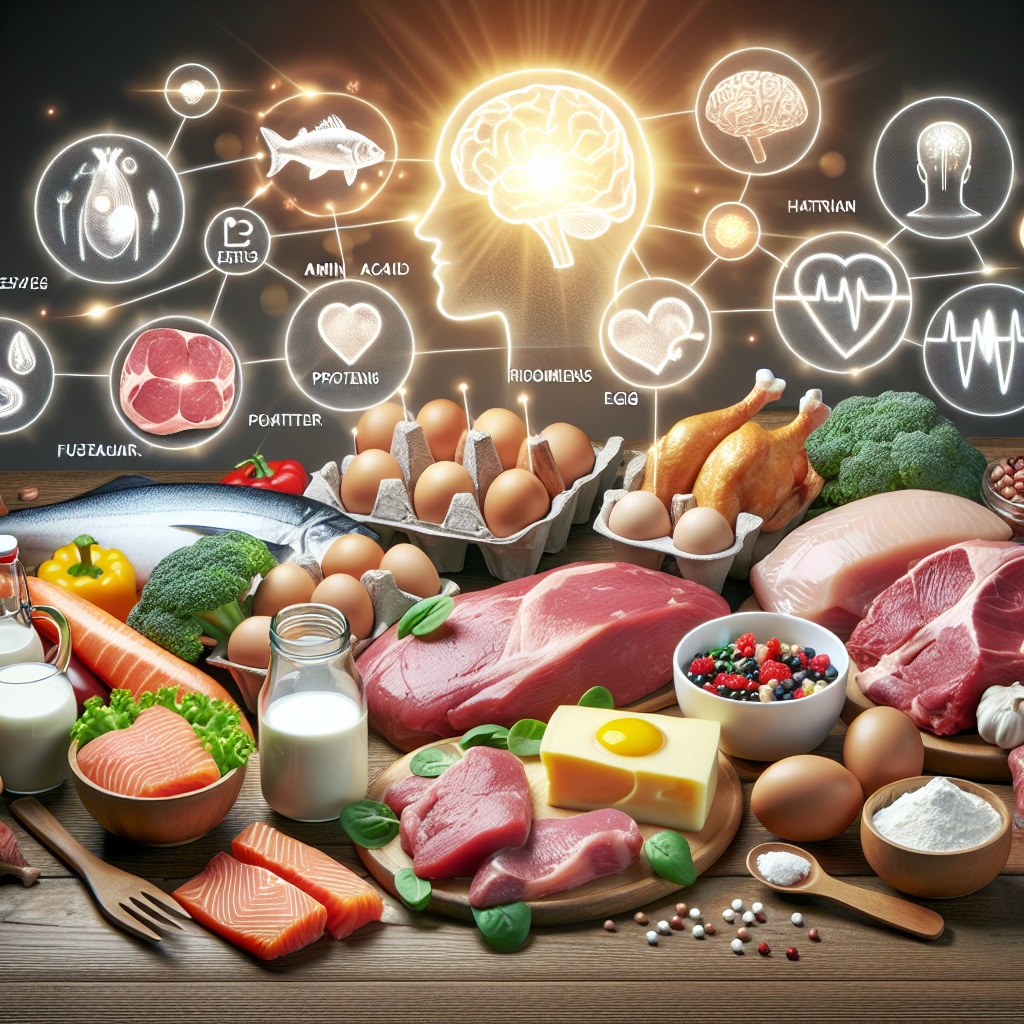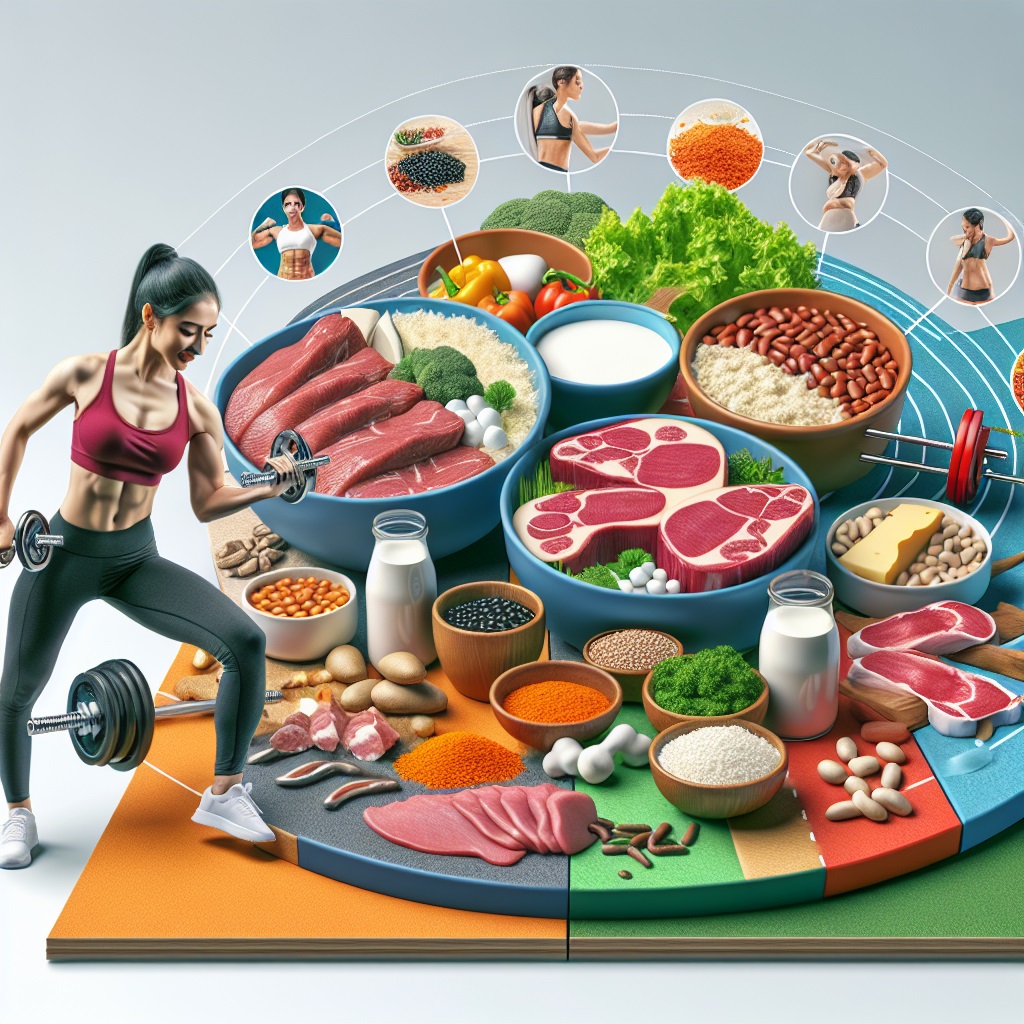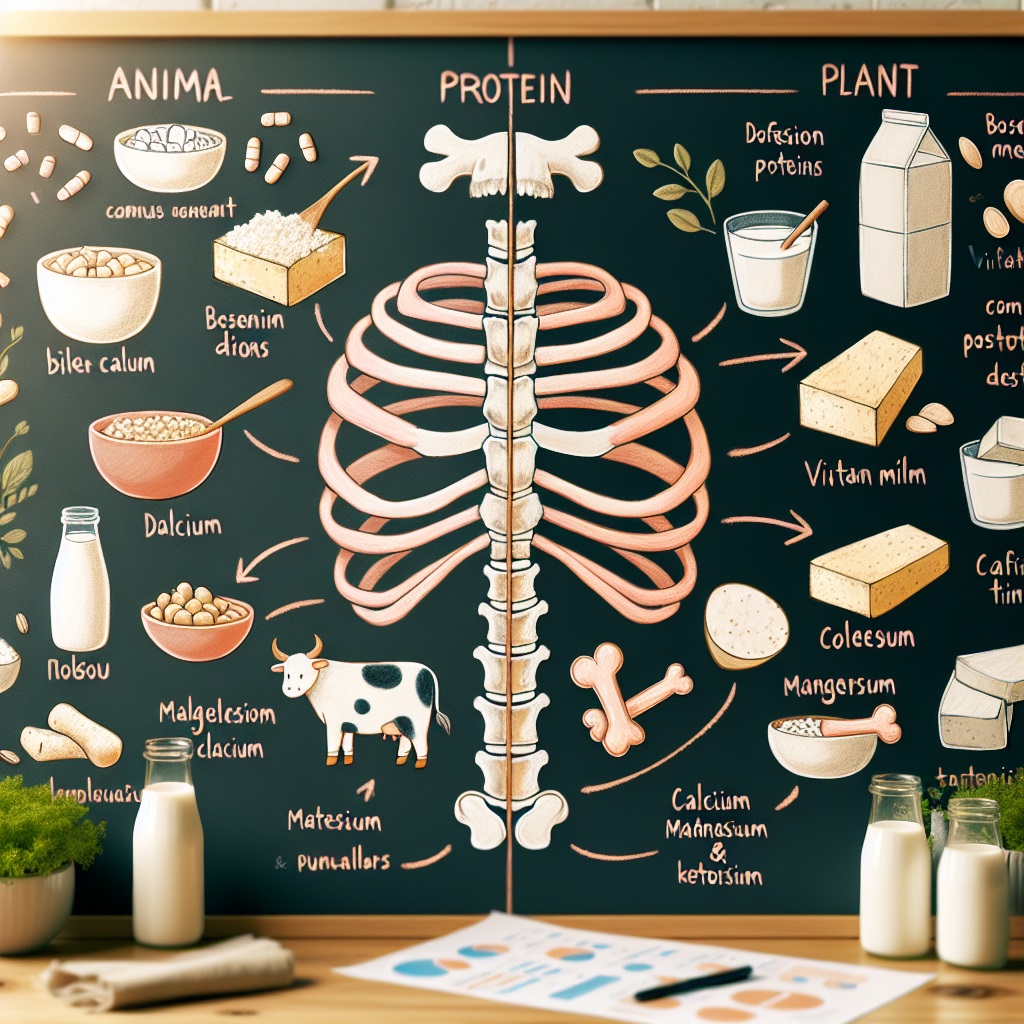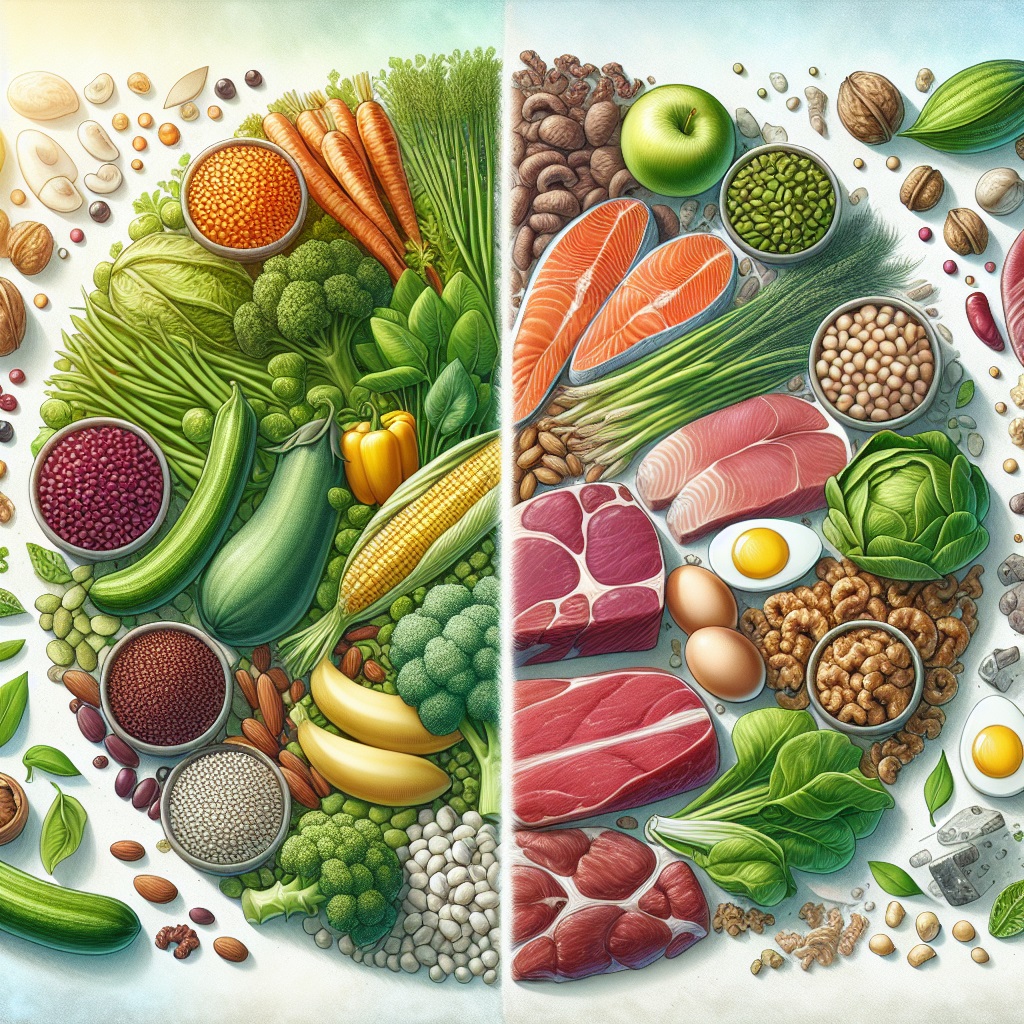Introduction
In the world of health and nutrition, few topics are as hotly debated as the source of our proteins. Whether you’re a fitness enthusiast, member of a health-conscious community, or someone on the quest for optimal nutrition, understanding how different types of protein impact your health is essential. In this post, we’ll break down the differences between plant-based and animal-based proteins, explore their unique health benefits, and offer guidance on when to choose each. By the end, you’ll be equipped with the knowledge to make informed protein choices that align with your health goals.
What Are Proteins?
Proteins are the building blocks of life. They are made up of amino acids, which are necessary for the body’s growth, repair, and maintenance. While our bodies can produce some amino acids, there are nine essential amino acids that we must obtain from our diet. These amino acids are crucial for various bodily functions, including muscle growth, immune system support, and enzyme production.
The Rise of Protein Awareness
In recent years, the importance of protein in our diet has gained widespread recognition. From bodybuilders to busy professionals, everyone is looking to increase their protein intake. But not all proteins are created equal. The source of your protein can affect its quality and how well your body absorbs it. This brings us to the core of the debate: plant vs animal protein.
Understanding Plant-Based Proteins
Plant-based proteins come from sources such as beans, lentils, nuts, seeds, and grains. These proteins are often praised for their health benefits and environmental sustainability. They are also a great option for those who follow a vegetarian or vegan diet.
Health Benefits of Plant Proteins
Plant proteins are typically lower in saturated fat and cholesterol compared to animal proteins. This makes them a heart-healthy option. They are also rich in fiber, which aids in digestion and helps maintain a healthy gut. Additionally, plant-based diets have been linked to a reduced risk of chronic diseases such as diabetes, heart disease, and certain cancers.
Nutrient Density of Plant Proteins
One of the standout features of plant proteins is their nutrient density. Foods like quinoa, chia seeds, and spirulina offer a powerhouse of vitamins, minerals, and antioxidants along with protein. This combination can enhance overall health and provide a more comprehensive nutritional profile.
Popular Plant Protein Sources
Some popular sources of plant protein include:
- Beans: Black beans, chickpeas, and lentils.
- Nuts and Seeds: Almonds, chia seeds, and flaxseeds.
- Grains: Quinoa, brown rice, and oats.
- Vegetables: Spinach, broccoli, and peas.
Each of these sources offers unique benefits and can be easily incorporated into a variety of meals.

Read More👉 Essential Nutrients Your Body Needs Daily and How to Get Them
Exploring Animal-Based Proteins
Animal-based proteins come from sources such as meat, poultry, fish, eggs, and dairy products. These proteins are known for their high-quality amino acid profiles and their ability to support muscle growth and repair.
Health Benefits of Animal Proteins
Animal proteins are complete proteins, meaning they contain all nine essential amino acids in the right proportions. This makes them highly effective for muscle building and recovery. They are also a rich source of important vitamins and minerals, such as B12, iron, and zinc, which are crucial for various bodily functions.
Nutritional Value of Animal Proteins
The nutritional value of animal proteins cannot be overstated. For example, fish like salmon is packed with omega-3 fatty acids, which support heart health and brain function. Eggs are another powerhouse, offering a blend of protein, healthy fats, and essential nutrients.
Popular Animal Protein Sources
Some popular sources of animal protein include:
- Meat: Beef, pork, and lamb.
- Poultry: Chicken and turkey.
- Fish: Salmon, tuna, and cod.
- Eggs and Dairy: Milk, cheese, and yogurt.
These foods are staples in many diets due to their high protein content and versatility.
Protein Quality and Bioavailability
Bioavailability refers to how well and quickly your body can absorb and use the protein you consume. Animal proteins generally have higher bioavailability compared to plant proteins. This means your body can make better use of the amino acids they provide.
Measuring Protein Quality
Protein quality is often assessed using the Protein Digestibility Corrected Amino Acid Score (PDCAAS). This score measures the amino acid profile and digestibility of a protein source. Animal proteins typically score higher on the PDCAAS scale, indicating they are more complete and easier for the body to use.
Enhancing Plant Protein Quality
While plant proteins may have lower bioavailability, combining different plant sources can enhance their quality. For example, pairing beans with rice creates a complete protein that offers all essential amino acids. This approach can help vegetarians and vegans meet their protein needs effectively.
Environmental Impact
One of the major considerations in the plant vs animal protein debate is the environmental impact of production. Plant proteins tend to have a smaller carbon footprint compared to animal proteins, making them a more sustainable choice.
Sustainable Protein Choices
Choosing plant-based proteins can significantly reduce your environmental footprint. For instance, producing one kilogram of lentils requires far less water and land compared to producing one kilogram of beef. This makes plant proteins an eco-friendly option for those looking to reduce their impact on the planet.
Ethical Considerations
Ethical concerns also play a role in protein choices. Many people opt for plant-based proteins to avoid the ethical issues associated with factory farming and animal welfare. By choosing plant proteins, you can align your diet with your values and contribute to more humane food production practices.
Protein for Fitness and Muscle Building
For fitness enthusiasts and athletes, protein is crucial for muscle growth and recovery. Both plant and animal proteins can support these goals, but they may do so in different ways.
Animal Proteins for Muscle Growth
Animal proteins, due to their complete amino acid profiles and high bioavailability, are often favored for muscle building. Foods like chicken breast, steak, and whey protein powder are staples in many athletes’ diets for their effectiveness in promoting muscle repair and growth.
Plant Proteins for Fitness
Plant proteins can also support muscle growth, especially when consumed in sufficient quantities and combined with other plant sources. Pea protein, hemp protein, and soy protein are popular plant-based options for athletes. With proper planning, a plant-based diet can provide all the nutrients needed for fitness and muscle development.
Balancing Protein Sources
A balanced approach that includes both plant and animal proteins can offer the best of both worlds. This way, you can benefit from the high-quality amino acids in animal proteins and the additional nutrients and fiber found in plant proteins.

Read More👉 Nourish Your Gut for a Healthier You with Nutrient-Rich Foods
Protein for Weight Management
Protein plays a key role in weight management by promoting satiety and maintaining muscle mass. Both plant and animal proteins can aid in weight loss and maintenance when included as part of a balanced diet.
Satiety and Protein
Protein is known to increase feelings of fullness, which can help reduce overall calorie intake. Animal proteins like lean meats and dairy are particularly effective at promoting satiety. However, plant proteins such as beans and lentils, with their high fiber content, also contribute to a feeling of fullness.
Muscle Preservation
Maintaining muscle mass is crucial for a healthy metabolism, especially during weight loss. Both plant and animal proteins can help preserve muscle mass when combined with strength training exercises. Including a variety of protein sources ensures you get all the necessary amino acids for muscle maintenance.
Healthy Protein Choices
For weight management, focus on lean protein sources that are low in saturated fat. Opt for grilled chicken, fish, tofu, and legumes. These foods provide high-quality protein without the added calories from unhealthy fats.
Protein and Heart Health
The type of protein you consume can affect your heart health. Plant proteins are generally associated with better heart health compared to animal proteins.
Plant Proteins for Heart Health
Plant-based proteins are naturally low in saturated fat and cholesterol, making them heart-friendly. Studies have shown that diets rich in plant proteins can lower blood pressure, reduce cholesterol levels, and decrease the risk of heart disease.
Animal Proteins and Heart Health
While some animal proteins, such as fatty cuts of red meat, can increase the risk of heart disease, others like fish and lean poultry can be beneficial. Fish, in particular, is rich in omega-3 fatty acids, which support heart health and reduce inflammation.
Balancing for Heart Health
A balanced diet that includes both plant and animal proteins can be heart-healthy. Focus on lean meats, fish, and plenty of plant-based sources. This approach can provide the benefits of both protein types while minimizing potential risks.
Protein Digestibility
Digestibility is an important factor to consider when choosing protein sources. How well your body can break down and absorb protein affects its overall nutritional value.
Animal Protein Digestibility
Animal proteins are generally more easily digested compared to plant proteins. This is because animal proteins have a structure that is more similar to the proteins in our bodies, making them easier to break down and absorb.
Improving Plant Protein Digestibility
Some plant proteins can be harder to digest due to the presence of fiber and antinutrients. However, proper preparation methods, such as soaking and cooking, can improve their digestibility. Fermented plant foods like tempeh are also easier to digest and can provide a good source of protein.
Combining Protein Sources
Combining different plant proteins can improve their overall digestibility and nutritional profile. Pairing foods like beans and rice or hummus and whole-grain pita ensures you get a complete protein that is easier for your body to use.

Read More👉 Fuel Your Fitness Journey With Nutrition Tips for a Healthy Life
Protein and Bone Health
Protein intake is essential for maintaining strong and healthy bones. Both plant and animal proteins contribute to bone health, but they do so in different ways.
Animal Proteins and Bone Health
Animal proteins, such as dairy products, are rich in calcium and other bone-building nutrients. Regular consumption of dairy can help maintain bone density and reduce the risk of osteoporosis.
Plant Proteins for Bone Health
Many plant proteins are also good for bone health. Foods like tofu and fortified plant milks provide calcium and vitamin D. Additionally, plant-based diets are often high in magnesium, potassium, and other minerals that support bone health.
Balanced Protein Intake
A balanced intake of both plant and animal proteins can provide all the necessary nutrients for bone health. Ensure your diet includes a variety of protein sources to support strong and healthy bones.
Common Myths About Protein
There are many myths and misconceptions about protein that can lead to confusion. Let’s debunk some of the most common ones.
Myth 1: You Can’t Get Enough Protein from Plants
One of the most persistent myths is that you can’t get enough protein from plant sources. In reality, a well-planned plant-based diet can provide all the protein you need. Including a variety of protein-rich plants ensures you get a complete amino acid profile.
Myth 2: More Protein is Always Better
While protein is essential, more isn’t always better. Consuming excessive amounts of protein can strain the kidneys and lead to other health issues. It’s important to find a balance and consume protein in moderation as part of a varied diet.
Myth 3: Animal Proteins Are Unhealthy
Not all animal proteins are unhealthy. Lean meats, fish, and dairy can be part of a healthy diet. It’s the quality and quantity of animal protein that matters. Choosing lean cuts and avoiding processed meats can support overall health.
Conclusion
Both plant-based and animal-based proteins offer unique benefits, and the best choice depends on your individual health goals and dietary preferences. Plant proteins are excellent for heart health, weight management, and sustainability, while animal proteins are ideal for muscle building and providing complete amino acid profiles. By incorporating a variety of protein sources into your diet, you can enjoy the benefits of both and support your overall health.
For those looking to explore more about protein sources and their impact on health, consider consulting with a nutritionist or joining a fitness community. Your protein choices can make a significant difference in your health and well-being, so make them wisely!

